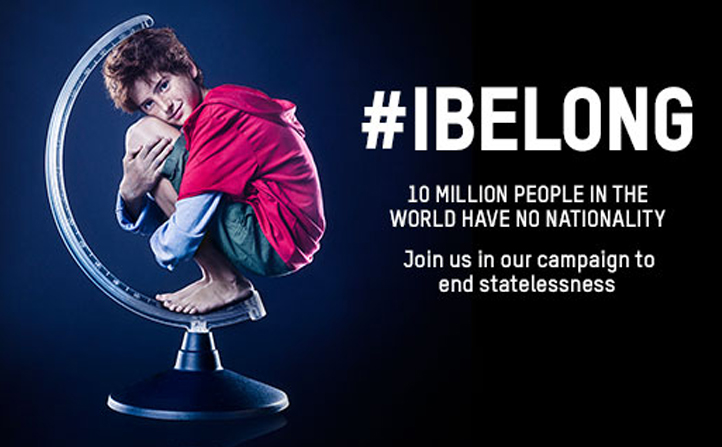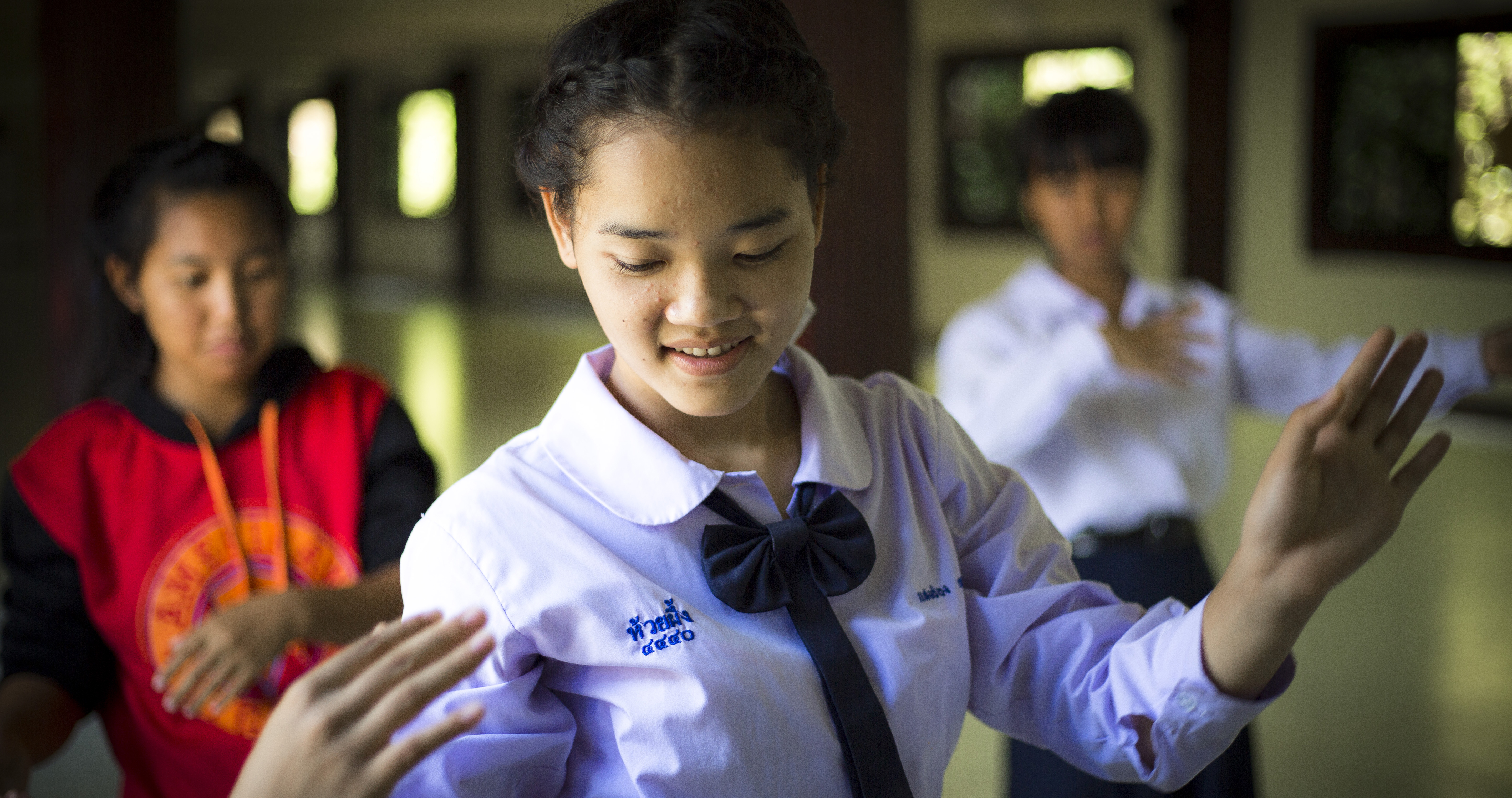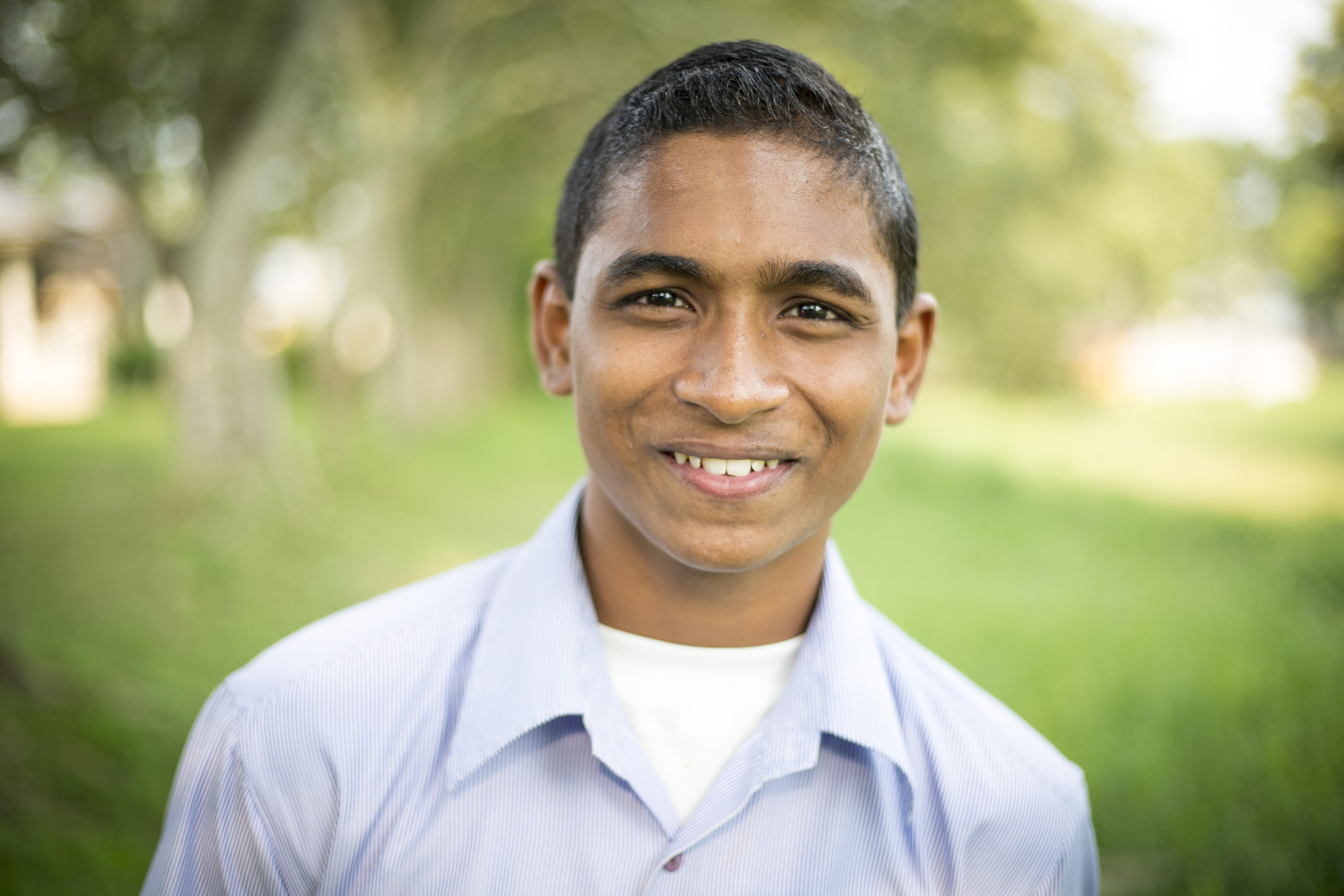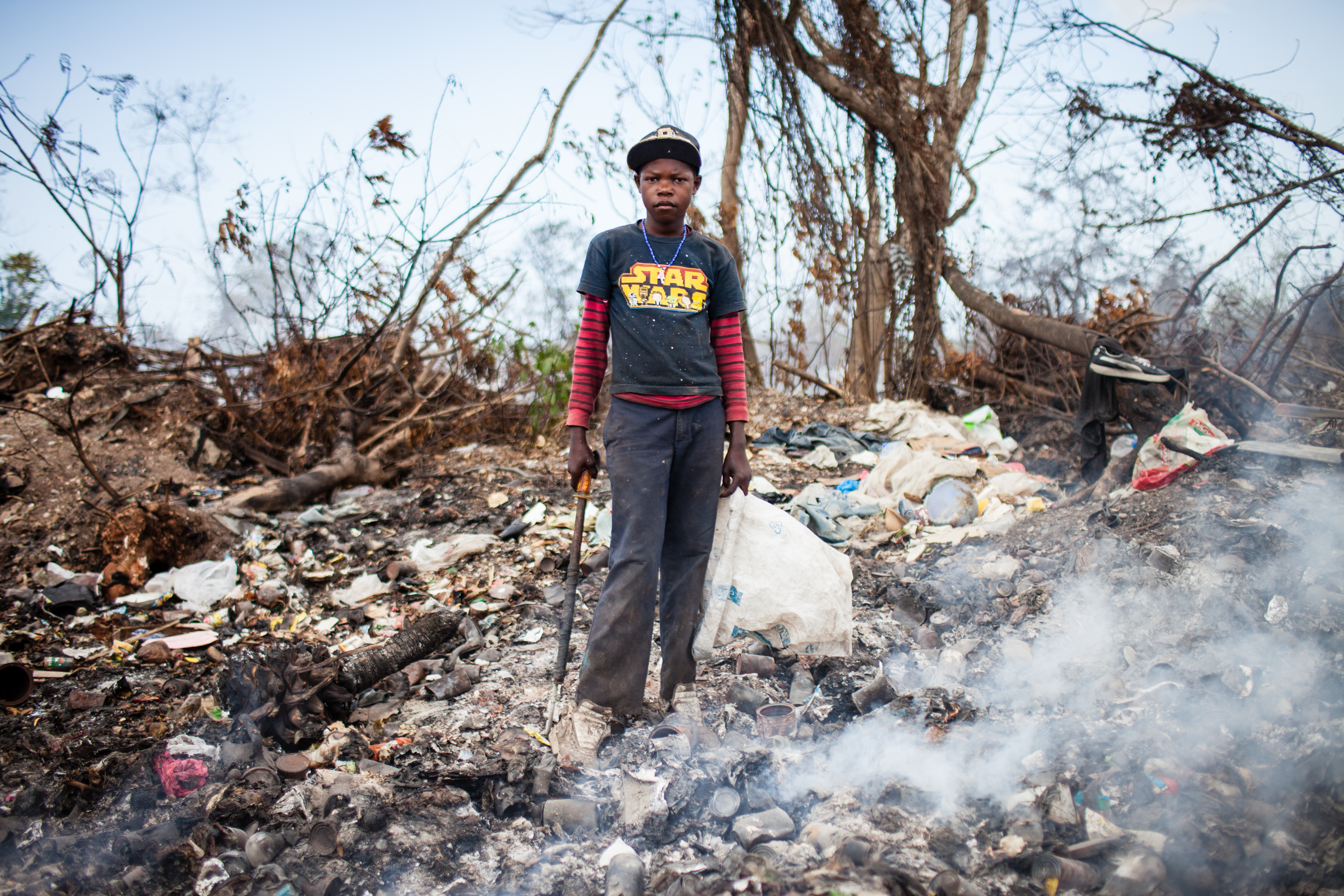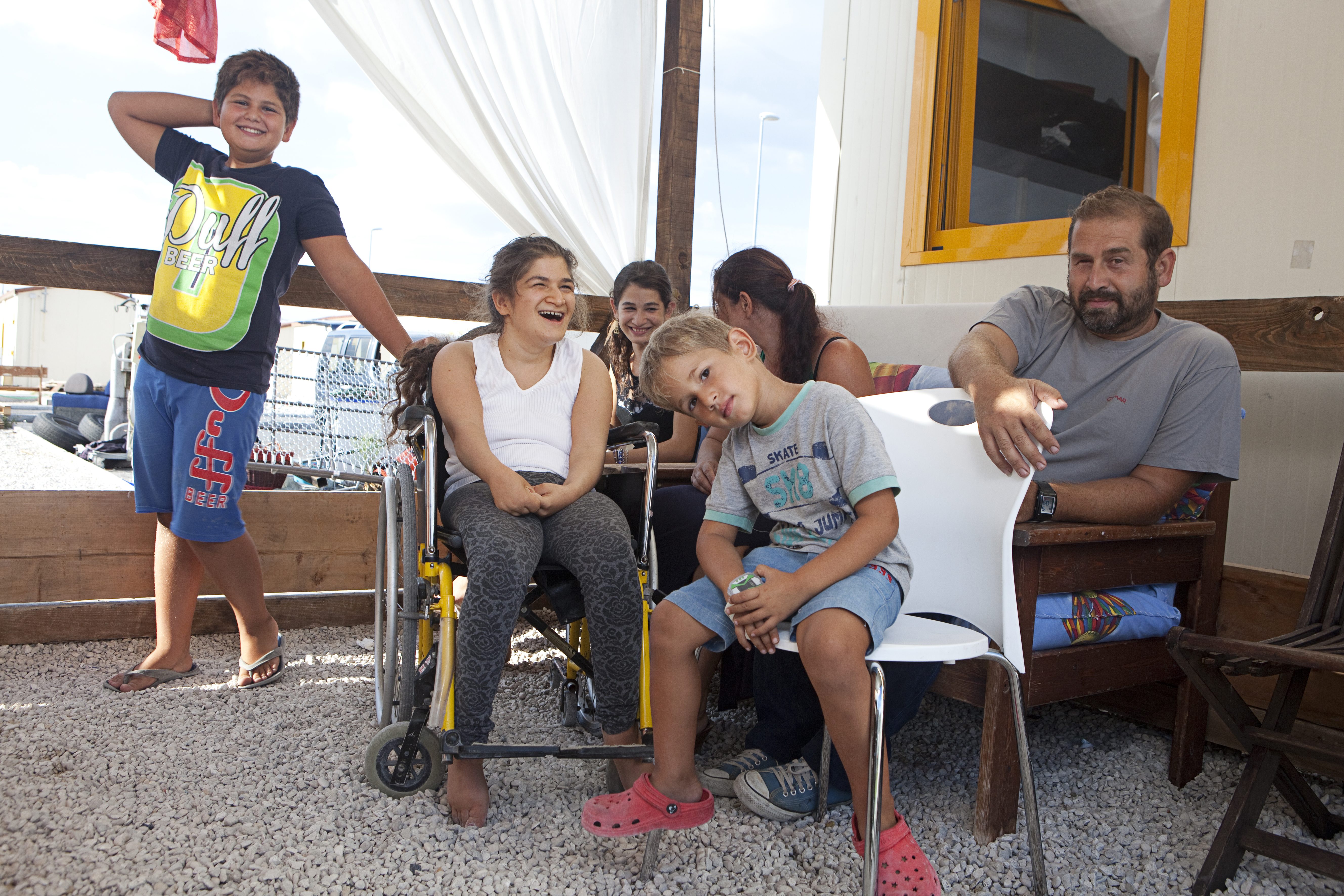Valeriia Cherednichenko is a One Young World Ambassador from Ukraine. Currently she works as a Consultant on Statelessness in Europe at the Bureau for Europe of the UN Refugee Agency. This blog piece reflects the views of the author and not necessarily those of UNHCR or the United Nations.
[[[image 0-large]]]
When I participated in the One Young World (OYW) Summit 2013 in Johannesburg, I was the only representative from Ukraine among 1300 people from 190 countries. This was an enormous responsibility. I felt like an athlete representing my country at the Olympics and, to be fair, One Young World is like the Olympics for today’s young leaders. Taking part in the Summit made me more aware then ever of my origins and the country I belong to. However, the One Young World Summit and its global community of Ambassadors also made me realise that stateless persons would not have the opportunity to represent ‘their’ country, simply because they lack citizenship or nationality of a state. They would not be able to proudly carry the flag of the country they feel they belong to during the Flag Bearing Ceremony, because their country refuses to recognise them as nationals.
Statelessness is a global anomaly that, according to the United Nations Refugee Agency (UNHCR), affects more than 10 million people in the world. UNHCR estimates that every ten minutes, somewhere in the world a child is born stateless. What strikes me the most about statelessness is how widespread it is and yet how invisible and unknown it is to so many of us. Of the dozens of friends whom I have spoken to about statelessness, very few had heard or read about it.
The first question I often get when I tell people that I work on ending statelessness is why it occurs in the first place. Statelessness has numerous causes. States may simply cease to exist (the Soviet Union, Yugoslavia, and Czechoslovakia are cases in point) and individuals fail to acquire citizenship of the successor states. Statelessness can also be caused by clashing nationality laws of different countries. In addition, administrative and practical causes (for instance, when individuals are unable to undertake the necessary procedural steps to acquire a nationality) and discrimination can cause statelessness, including gender discrimination. Today, there are still 27 countries in the world where women cannot pass on their nationality to their children in the same way as men.
Statelessness limits your life to the extent that you feel invisible. It can be an insurmountable obstacle to opening a bank account, entering university, getting medical treatment, getting married to the person you love, traveling or getting a job.
[[[ image 5-large]]]
Photo credit: © UNHCR/F.Martin
This is why in 2014 UNHCR launched its #IBELONG Campaign, the ten-year Campaign to End Statelessness by 2024. The specific theme of the Campaign for 2015 and 2016 is the impact of statelessness on youth and children. In 2015,UNHCR published its report ‘I Am Here, I Belong: The Urgent Need to End Childhood Statelessness’ (also available inSpanish and French). UNHCR spoke to more than 250 children, young people and their families from seven different countries. Many of the children and young people had never spoken to anyone about what it was like to be stateless. They described themselves as “invisible,” “alien,” “living in a shadow,” “like a street dog,” and “worthless.” No child or young person deserves to feel that way. As UNHCR’s former High Commissioner António Guterres puts it: “In the short time that children get to be children, statelessness can set in stone grave problems that will haunt them throughout their childhoods and sentence them to a life of discrimination, frustration and despair. If our hopes for the future generation are to be realised, that generation must be a meaningful part of the present. None of our children should be stateless. All children should belong.” I think the message about the current generation of young people being a ‘meaningful part of the present’ echoes the philosophy of One Young World and the impact that today’s youth can have on the world.
During the summer of 2015, when UNHCR conducted the interviews to gather information for the above mentioned report, I had the good fortune of meeting with stateless youth in several different countries. The most prominent message of stateless young people from all around the world is that they strongly identify themselves with the countries in which they were born and have lived all their lives. Despite the hardships they face, most of them see their future in the countries where we met them, in many cases the only country they have ever known. All of them referred to those countries as ‘home’. Let me share some of their stories with you:
Annick (13) was left in the care of her grandparents in Côte d’Ivoire when she was very young. When her grandparents died a few years later, she was placed in the care of a family from the same ethnic group. Since her birth was never registered, there was no official proof of her parentage, and there was no one to testify on her behalf. Thus, the authorities consider Annick’s parentage unknown, which means she cannot be considered an Ivorian national and remains stateless. Birth registration is crucial to preventing statelessness, as it is key proof of the link between an individual and a state.
[[[image 1-large]]]
Photo credit: © UNHCR/Roger Arnold
Access to higher education was one of the biggest challenges mentioned by stateless persons. Despite the fact that all of them had found a way to attend primary school (many only thanks to the goodwill of the teachers), very few had been able to graduate from secondary school and attend a university. “I get pretty good grades,” says Patcharee (15), a stateless hill-tribe girl in Thailand. “Maybe I am even at the top of the class. But every time there is a scholarship, it is given to someone who has a national ID card.” Her classmate Boon (16), echoes the sentiment of many others: “It should be the right of every child to study and learn. That is the most important thing.”
[[[image 2-large]]]
Photo credit: © UNHCR/Roger Arnold
Many of those UNHCR spoke to mentioned that they had difficulties in accessing health care due to lack of national identity documents. Pratap (15) from Malaysia told us that the only thing the hospital workers cared about when he severely injured his leg while playing football was his lack of documents: “I felt angry because no one wanted to help me, even when I was clearly in pain. They scrutinised my status even though it was an emergency. Is it my fault that I don’t have a nationality? I was born in this country like any other Malaysian. Why do I have to suffer this way?”
[[[image 3-large]]]
Photo credit: © UNHCR/Kakhaber Shartava
When I met Jirair (22) in Georgia, he did not have any documents that gave proof of his identity either. He is an aspiring Greco-Roman wrestler and dreams of representing Georgia at international competitions. “The doors of the world are closed for me,” says Jirair. “Everybody left for a tournament and I stayed behind to train here on my own. The coaches support me by saying: ‘It is OK, be patient, keep training.’ When the others come back, they have tons of exciting updates. I listen to their stories, but on the inside I am crying. I still hope to become a good coach for young people, to set a good example. The one thing I need to achieve my dreams is citizenship.” Despite these difficulties, Jirairremained a positive young man who truly believed that his life would soon improve.
And it did. Not long after we met Jirair, he was finally recognised as a stateless person in Georgia. It enabled him to obtain a travel document for stateless persons and participate in a statelessness commemoration event at the UN Headquarters in New York: “I received an official travel document. For the first time in my life, I had an identity. Holding this document in my hand and standing in front of you today, it feels like the time when my coach would take my hand and lift it up after I won a competition. Now instead of my coach, you are taking my hand, and I am counting this as a life win for me.” Jirair's classification as a stateless person has also put him on the pathway to acquire citizenship - he will be able to apply for Georgian citizenship in five years. Meanwhile, he has started learning English, so he can communicate with more people from other countries.
[[[image 4-large]]]
Photo credit: © UNHCR/Markel Redondo
For many, the psychological scars are among the severest impacts statelessness has on their lives. Statelessness simply takes away their childhood. Joe (13), who is stateless in the Dominican Republic, has no other options but to spend his school vacations at the rubbish dump in order to earn a wage to support his family: “I like going to school. I especially like maths,” says Joe. “When I grow up I want to be a baseball player, but this summer I won't be playing baseball.” Unfortunately, dreams and goals of teenagers like Joe might never be realised because of their statelessness.
Nedzed (23), who is stateless in Italy, tries not to let statelessness be in the way of his active social life and desire to become a role model for young persons who ended up stateless like him. He campaigns for stateless people in Italy and believes that change will occur: “Right now, I always try to support my community, and also those who are in the same situation as I am. I hope that this will motivate them. I tell them: ‘All right, you don’t have documents, but you can do this and that, right? You are not locked in chains, you are a person.'”
I hope that the stories of stateless young people around the world will inspire states and activists like many of you, my fellow OYW Ambassadors, to continue to raise awareness about statelessness and UNHCR’s #IBELONG Campaign. You can also support UNHCR’s efforts and sign the open letter today. By gaining nationality, over 10 million stateless persons across the globe could finally enjoy a sense of belonging in this world. I want to believe that you and I BELONG to a world where everyone has the right to a nationality.
